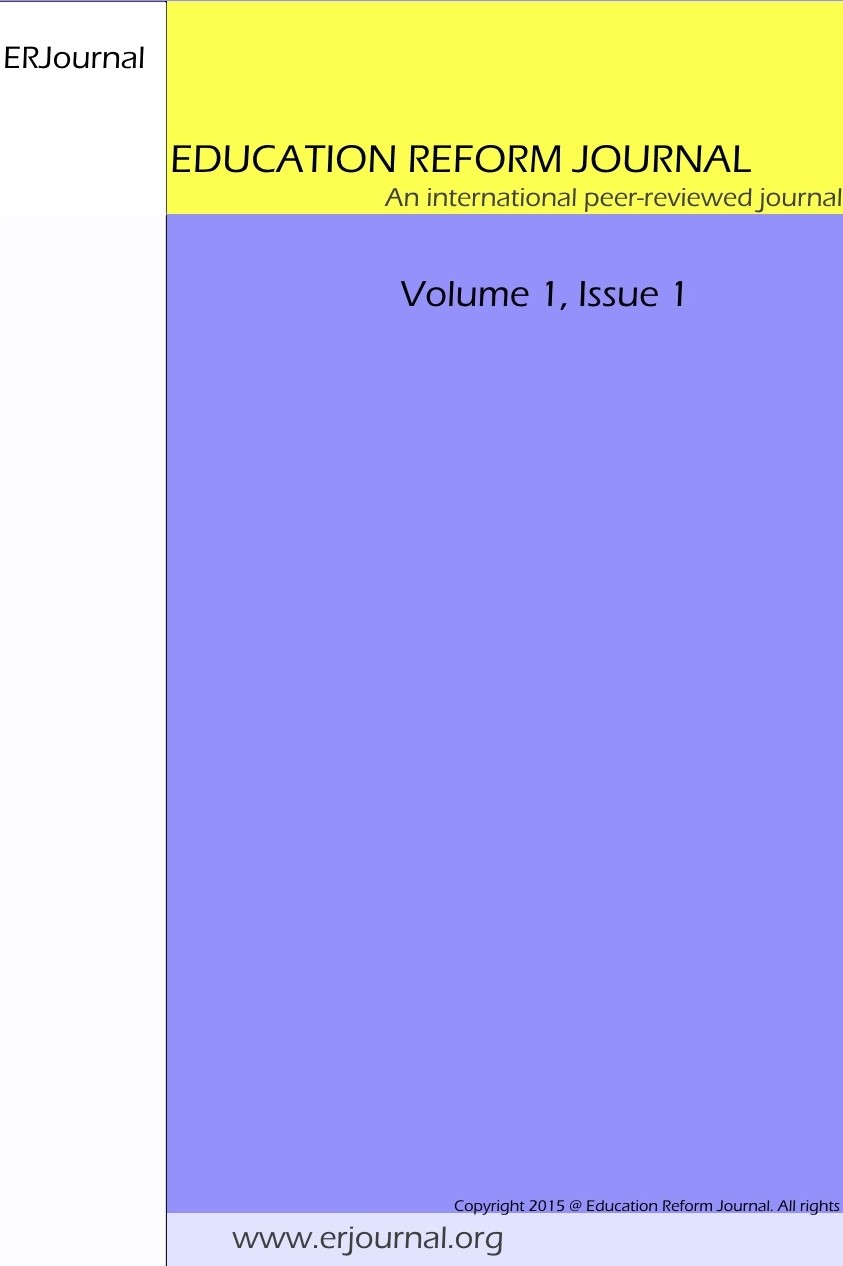The Attitudes of Future Educational Agents to Religious and Cultural Diversity in Education in Catalonia
The Attitudes of Future Educational Agents to Religious and Cultural Diversity in Education in Catalonia
The religious diversity in Catalonia is a challenge for the coexistence in the public space and for the education of future educators. This article emphasizes the challenge of religious diversity in the educational context, analyzing which attitudes have the educational agents of the future towards: a) the religious diversity, b) the interreligious and intercultural dialogue, and c) the role of education in the management of this diversity. In order to ask these questions has been conducted a survey study on the framework of the Project AGAUR-2014RELIG00019 named "Attitudes towards religious and cultural diversity in education for intercultural dialogue and interfaith scale". The population of the study has been the students in Teacher Training in Primary and Early Childhood, Social Education, Social Work and Pedagogy degree of all catalan Public Universities. The conclusions highlight a) the favorable attitude towards cultural and religious diversity and interreligious dialogue and b) the relevance to the education given by the students, as an key role in the management of religious and cultural diversity.
Keywords:
Religious diversity, Interreligious Dialogue, Higher Education Teachers and Training Education, Pedagogy, Social Work,
___
- Besley, T., & Peters, M. A. (Eds.). (2012). Interculturalism, education and dialogue. Pieterlen. Switzerland P. Lang: Coll, M. (2012). "Laïcitat i diversitat religiosa".Revista de la cátedra sobre diversitat social de la Universitat Pompeu Fabra. Divèrsia,2, 3-35.Elósegui, M. (2009). Políticas públicas y educación intercultural. En A J. Garay, G. Díaz, M.Elósegui y M. Sabariego.El diálogo intercultural en España: un requisito de la educación y cultura de Paz. (pp131-189) Madrid: Ministerio de Educación.
- Estruch, J. (2014). "La diversitat religiosa a Catalunya".Revista de la cátedra sobre diversitat social de la universitat pompeu fabra.5, 3-12
- Freixa, M., Vilà, R., Rubio, M.J. & Belghirane, F. (2017). Los futuros pedagogos ante el hecho religioso. Estudio exploratorio en la Universidad de Barcelona. Revista Electrónica interuniversitaria de Formación del Profesorado, 20 (3), 195-207. DOI: http://dx.doi.org/10.6018/reifop.20.3.282501
- Generalitat de Catalunya (2013). La diversitat religiosa en les societats obertes. Criteris de discerniment. Consell Assessor per a la diversitat religiosa. Barcelona. Generalitat de Catalunya, Departament de Governació i Relacions Institucionals. Barcelona.
- Knitter, P.F. (Ed.). (1998). Pluralism and Oppression. Maryland: University Press.
- López, M. (2012). Políticas europeas en relación con la formación en materia religiosa: la promoción del diálogo interreligioso y la educación intercultural. En J.L. Álvarez y M.A. Essomba (coords). Dioses en las aulas. Educación y diálogo interreligioso (pp61-84). Barcelona: Graó.
- Santiago, M. y Corpas, C. (2012). Bases para el desarrollo de buenas prácticas de educación para la convivencia en la diversidad cultural y religiosa. En J.L Álvarez. y M.A Essomba, (coords.) Dioses en las aulas. Educación y diálogo interrelgioso . (pp123- 141) Barcelona: Grao.
- Tisdell, J. (2003) Exploring spirituality and culture in adult and higher education. San Francisco CA: John Wiley & Sons,
- Torradeflot, F. (2011). Religiones y pluralismo. Las vías del diálogo interreligioso en España. Madrid: Observatorio del Pluralismo Religioso en España.
- Vendrell, E., Pont, J.F., CaneT, E., García-romeral, G., Griera, M.M., Martín,I.,Llorente,I; Funes,J; Stellà,S.J., Molina,V., Illa,O., Goberna,R., Villanueva,J., Panadero,H., Luque,S., Pont,A. y Faura,P. (2014).Informe Ferrer i Guàrdia. Aportacions per una societat laica. Barcelona. Fundació Ferrer I Guardia
- ISSN: 2602-3997
- Yayın Aralığı: Yılda 2 Sayı
- Başlangıç: 2015
- Yayıncı: Mustafa ÖZMUSUL
Sayıdaki Diğer Makaleler
Refugee Students Views about the Problems They Face at Schools in Turkey
Mehmet Nuri GÖMLEKSİZ, Sibel ASLAN
The Views of Secondary School Teachers about Refugee Students
Mehmet Nuri GÖMLEKSİZ, Sibel ASLAN
Ruth VİLÀ, M José RUBİO, Assumpta ANEAS
An Investigation of Out-of-Class Language Activities of Tertiary-Level EFL Learners
